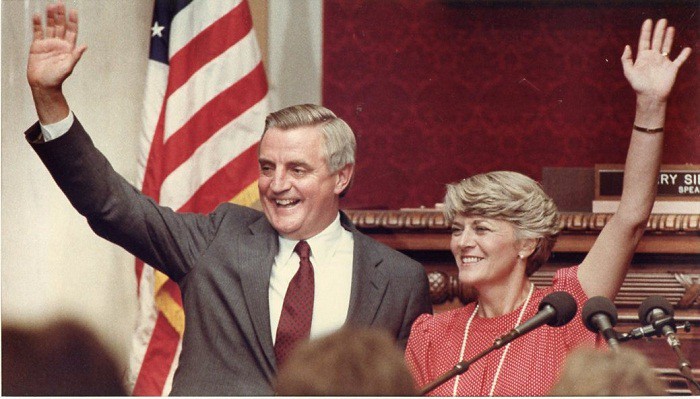Donna Zaccaro is Founder and President of Dazzling Media, a New York-based media production company and is also Geraldine Ferraro’s daughter. Donna served as the director and producer for Geraldine Ferraro: Paving the Way. Previously, Donna was a longtime, award-winning
producer for the Today show. She has also worked in politics, public affairs marketing and communications,
and investment banking.
Geraldine Ferraro: Paving the Way
is playing as part of the World Cinema program at HIFF.
Women and Hollywood: Please give us your description of the film playing.
Donna Zaccaro: Geraldine Ferraro: Paving the Way is a feature-length documentary that tells a number of stories: The principal story is the life
of political trailblazer Geraldine Ferraro and the impact she had on American culture and politics, but there is also the very American story of a child of
immigrants rising out of poverty through education to unimaginable achievements. There is the story of the struggles of women in this country to achieve
power, and what it takes for women to be considered equals to men, including the personal costs involved and there is also the love story between my
parents, Geraldine Ferraro and John Zaccaro, and how critical my father’s untraditional and unwavering support of my mother was to her being able to even
attempt the professional and personal challenges she faced.
WaH: What drew you to this story?
DZ: I wanted to both clarify and preserve my mother’s legacy and at the same time, share the lessons of her life to hopefully inspire others to greater
achievement in their own lives. Younger women and men today probably don’t know who Geraldine Ferraro was or how much her life affected theirs. Those who
do know who she was and remember her historic Vice Presidential candidacy, did not likely know what she had overcome to get to that point, and then what
she had to endure during that campaign and afterwards in large measure, as a result of her pioneering role. And though this is the story of my mother’s
life, it is also very much the story of my father’s life with her — a life that he has never before been willing to talk about publicly, and I story that
I thought should be told.
WaH: What was the biggest challenge?
DZ: I faced a number of challenges in making this film — The first challenge was emotional: I had interviewed my mother on camera a year before she died
with the understanding that I would use the interview in a documentary after she died. I hadn’t looked at the footage of the interview while she was alive
and did so shortly after she died and it was quite a shock as my grief for her loss was so fresh. It was difficult to look at photos and footage of her and
talk about her every day for the 13 months that I worked full time on the documentary.
The second challenge was professional: I was worried that I was too close to the story to be able to provide a critical look at her life and impact.
Fortunately, I had wonderful co-producers and an editor who helped me to put the story into perspective.
WaH: What advice do you have for other female directors?
DZ: The advice I give women — whether they are directors or in any other position — is not to wait for other people to give you permission to do what you
want to do or even to recognize that you are able to make the next step in your career. Women have a tendency to doubt whether they can do something they
haven’t done before and will qualify their experiences and capabilities. Men have a tendency not to do that; instead, they tend to assume or at least act
as if they are capable to handle whatever the next challenge is — whether or not they truly are. One thing I’ve learned over my career is how critical it
is to have the confidence that I’ll figure out how to handle whatever challenge, job or project and to just take a leap even if I don’t/one doesn’t feel
completely ready.
WaH: What’s the biggest misconception about you and your work?
DZ: I think the biggest misconception about me and this film might be that because I am the daughter of the subject, the film would be a purely positive
look at my mother and her life. And though I think the film does present my mother in a positive light, I think I was able to approach her story as a
journalist and present a balanced picture.
WaH: Do you have any thoughts on what are the biggest challenges and/or opportunities for the future with the changing distribution mechanisms for films?
DZ: I think the biggest opportunity presented by changing distributions mechanisms for films is that there are many more ways and outlets for films to be
seen. I think the biggest challenge is figuring out how to fund documentaries with fewer of those distribution mechanisms willing to pay for content.
WaH: Name your favorite women directed film and why.
DZ: I don’t have a favorite woman-directed film; I have lots that I have loved and couldn’t possibly choose.
Here’s a short preview of the film.







